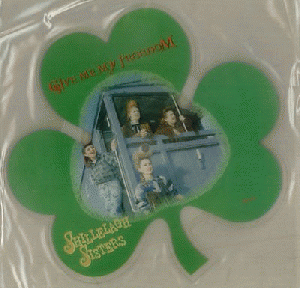Reprinted from Dispatches From The Edge
If there is one thing clear after Ireland's recent election, it is that people no longer buy the myth that austerity is the path to economic salvation. It is the same message that Greeks, Portuguese and Spaniards delivered to their elites over the past year: the prophets of tough love, regressive taxes, and massive social services cutbacks should update their resumes and consider a different profession than politics.
Ireland is a small country but the Feb. 26 election drove a big spike into the policies of the "troika" -- the European Central Bank, the European Commission and the International Monetary Fund -- that have blitzed economies across the continent and made chronic unemployment and growing economic inequality a continuing source of malaise.
The governing center-right Fine Gael lost 16 seats, and its partner, the center-left Labour Party, was virtually wiped out, dropping from 37 seats it controlled after the 2011 election only to six. The two parties had overseen an economic program that almost doubled child poverty rates, drove some 500,000 young people to emigrate, reduced wages by 15 percent, and sharply raised the jobless rate.
Ireland's economic difficulties had nothing to do with public spending, but were the fallout from private speculators and banks caught in the great 2008 financial meltdown. Rather than making the speculators pay, the then government of Fianna Fail shifted the bank debts to taxpayers. The troika agreed to a $67 billion bailout of the banks, but only if major bondholders were exempted and the government would institute a draconian austerity program. Most Irish voters were unaware of this "trade off" until just before the election.
The Fine Gael/Labour government has long claimed that it had no choice but to apply the austerity formulas and that, in any case, the policies worked, because the economy was recovering. Voters didn't buy it. The "recovery" has largely been restricted to Dublin -- where homelessness in January reached a record high -- and the growth was largely a product of falling oil prices and a decline in the value of the euro, rather than the result of austerity.
As Fintan O'Toole of the Irish Times put it, "What voters said on Friday is in some ways highly complex, but in relation to the dominant narrative" that austerity is the path to recovery, the Irish said, 'We don't believe you.'" The Fine Gael-Labour campaign slogans of "stability" and "all is well" fell flat. The government, O'Toole said, "imagined that it would ride back to power on a feel-good factor, as if people who had been repeatedly beaten should feel good that the beating has stopped."
At first glance, the Irish election looked like a shootout between the two center-right parties -- Fine Gael and Fianna Fail -- that have taken turns governing Ireland for more than eight decades. But this time around Fianna Fail ran from the left -- mild left, as it were -- promising greater fairness and more public services. Fianna Fail, which was crushed in the 2011 election, bounced back from 21 seats to 44 and is now the second largest party in the Dail after Fine Gael.
The Dail has 158 seats.
(Note: You can view every article as one long page if you sign up as an Advocate Member, or higher).






